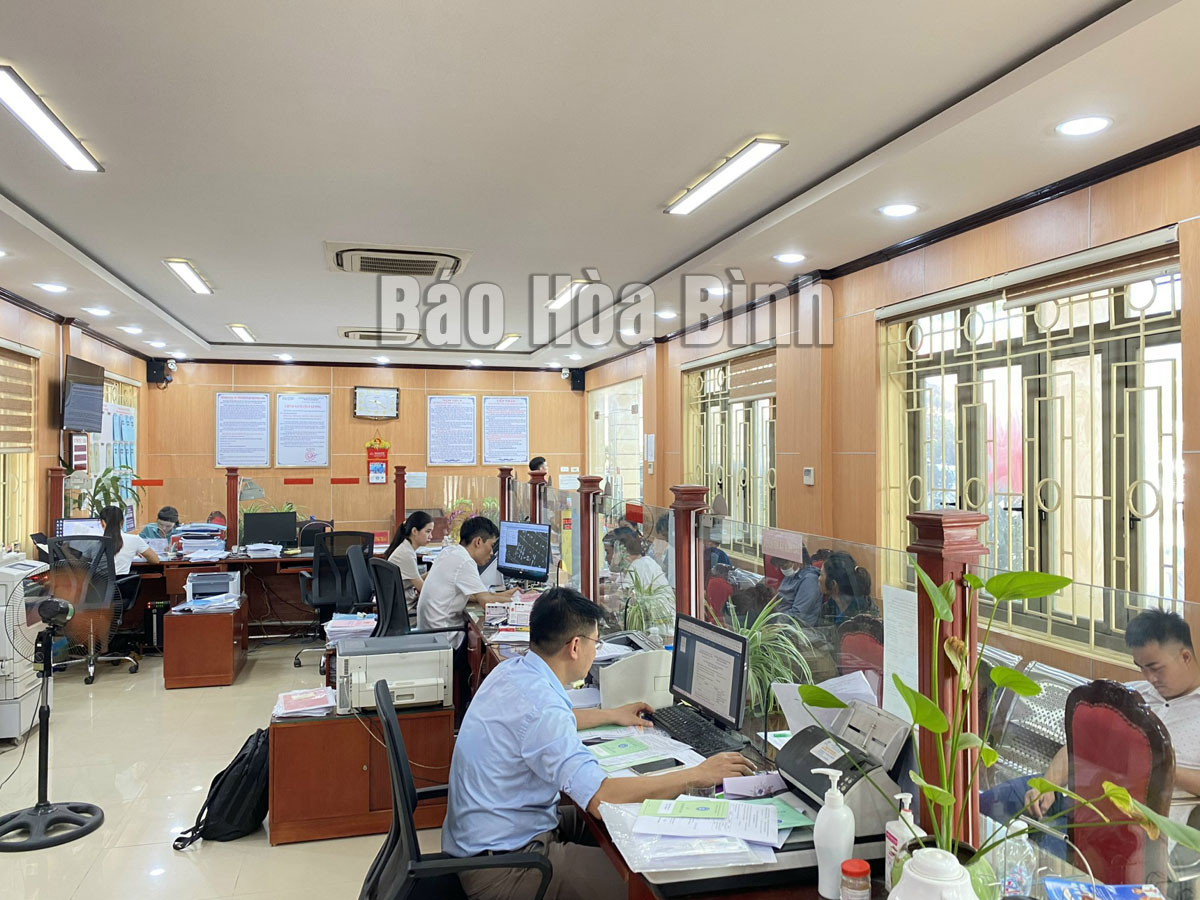



Currently, five enterprises are investing in telecommunications infrastructure and providing telecommunications and internet services, namely VNPT Hoa Binh, and branches of Viettel, FPT, MobiFone, and Vietnamobile. Landline service is available in all of its 151 communes. The 2G/3G/4G mobile networks covered all communes, wards, and towns in the province.
The province’s mobile service coverage rate by residential area reached 95.8% as all of its communes, wards and townss have mobile base stations (BTS).
There are over 900,000 telephone subscribers and 120,000 fixed broadband subscribers in the province. It now has over 9,000 km of fiber optic lines.
The provincial Department of Information and Communications proposed the Ministry of Information and Communications allow three telecommunications service providers Viettel, VNPT, and MobiFone to install 41 BTS stations in 41 villages/hamlets in the province to help local people better access information and support online teaching and learning.
Up to now, all state agencies in the province have an internal network (LAN) and broadband internet connection. Up to 98% of the cadres, civil servants, and public employees at the provincial level are equipped with computers. The rate at the district and commune levels is 91% and 88%, respectively.
Specialised data transmission networks of Party and State agencies are deployed at 183 points, of which, 32 points are at departments, agencies, People's Committees of districts and cities, and 151 points at People's Committees of communes, wards, and townships.
Some departments and sectors such as the Departments of Education and Training; Finance; Natural Resources and Environment; Public Security, and the Office of the provincial People's Committee established small data centres with three to ten servers to install specialised software and databases.
The province's online video conferencing system is deployed with 11 connecting points from the provincial People's Committee to ten districts and cities. In addition, all ten districts and cities in the province actively invest and deploy online video conferencing systems from the district to the commune level, increasing efficiency in organising meetings and saving travel time.
The provincial People’s Committee implemented a paperless meeting room system from the third quarter of 2021.
Bui Duc Nam, Director of the Department of Information and Communications, said that IT infrastructure development has left an important impact on the operation of the province's socio-economic infrastructure system.
In the coming time, the department will continue to increase consultancy and proactively propose to the Ministry of Information and Communications and the provincial People's Committee to issue documents to better manage relevant issues.
In particular, it will closely coordinate with sectors and localities to develop investment plans for key infrastructure development in which IT and communication infrastructure will be prioritised./.